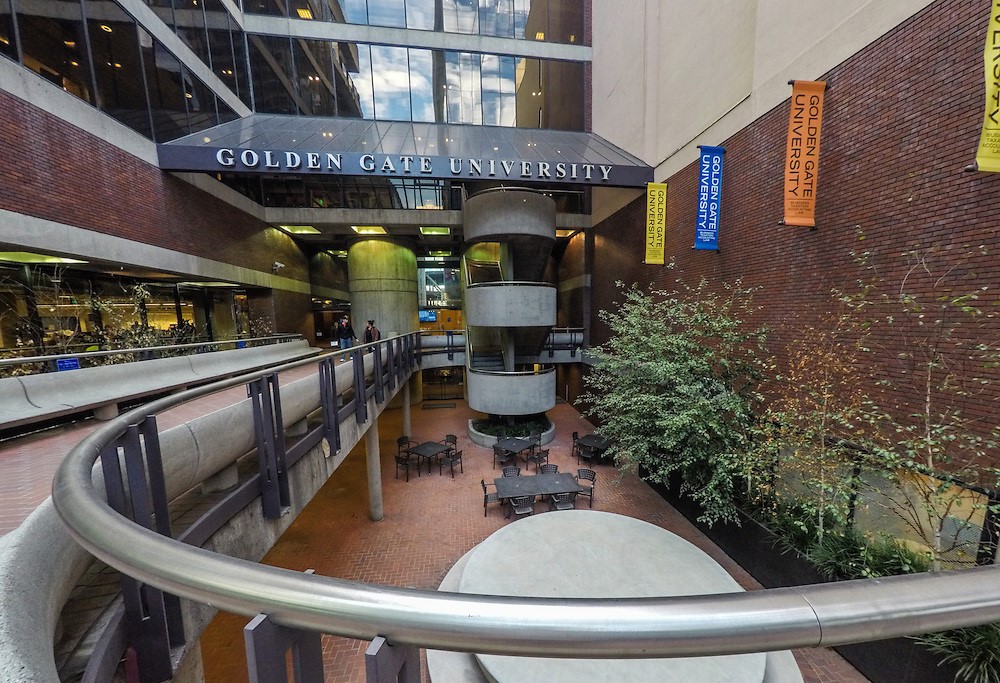In a critical juncture for the Golden Gate University (GGU) School of Law, the university’s Board of Trustees is set to meet on June 21 to discuss the future of the struggling institution. Concerns over ABA accreditation and mounting financial deficits have prompted this pivotal decision. An email circulated by the university president and current dean informed the law school community about the meeting, emphasizing the need to address these challenges while alluding to the possibility of an uncertain outcome. Despite phrases like “a long-term future” and “no decisions have been made,” the email implied that the odds of the law school’s survival might be less favorable than its employment figures suggest.
Over the past decade, GGU School of Law has grappled with a persistent struggle to generate sufficient tuition revenue to cover operational expenses while simultaneously ensuring compliance with ABA bar passage requirements. Recognizing the urgency of the situation, a comprehensive plan was formulated approximately a year and a half ago (in January 2022). This bold proposal, developed in collaboration with internal and external legal education experts, aimed to transform GGU Law in line with the university’s enduring commitment to accessibility and affordability. The plan received overwhelming support from the law school faculty.
Despite the integrity and promise of the plan, which was expected to be adequately funded, the university now faces challenges arising from tighter capital markets and the significant devaluation of commercial real estate in downtown San Francisco. GGU had intended to sell its downtown properties and optimize its physical space requirements. However, the current state of the downtown real estate market is unlikely to resolve all of the institution’s financial difficulties.
Enrollment at the law school has experienced a sharp decline of over 80 percent since 2010. Although employment statistics have improved over the same period, the figures for the class of 2022 graduates remain distressingly low at 38 percent. Comparatively, UC Law—San Francisco, formerly Hastings Law School, leaves its students with approximately $270,000 in debt but boasts a 73.5 percent employment rate. The GGU School of Law’s financial burden, with a projected debt of around $283,000 per student, seems disproportionate when considering the nearby alternative delivering more favorable outcomes.
Find the perfect match for your legal expertise and experience with BCG Attorney Search.
Furthermore, a closer examination of the email reveals potential causes for additional concern. The email was signed by Mark Yates as “Dean, GGU Law,” raising questions about the leadership structure. Colin Crawford was previously designated as the incoming dean of the University of Arkansas—Little Rock, effective July 1. However, no official announcement regarding Yates’s promotion or role within the institution has been made. Such a leadership shuffle just prior to the Board’s vote on the law school’s future does not bode well for its prospects.
The recent departure of the university-wide provost, who left for Hawai’i last month after a relatively short tenure at GGU, adds to the uncertainty. The provost played a pivotal role in a failed initiative to establish an online education partnership with the University of Arizona. This departure raises concerns about stability and strategic decision-making within the university administration.
The outlook appears bleak as the Board of Trustees gathers to deliberate on the law school’s future. The combination of accreditation pressures, mounting deficits, declining enrollment, and leadership uncertainties presents a formidable challenge. Whether the GGU School of Law will survive and continue to operate remains uncertain. At this point, only time will reveal the outcome of this critical decision.
Don’t be a silent ninja! Let us know your thoughts in the comment section below.

